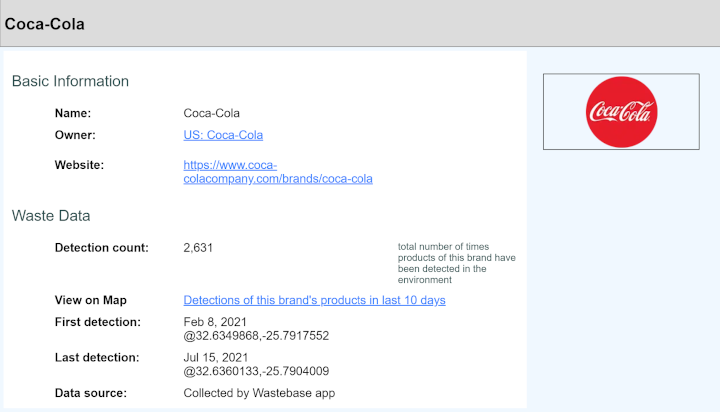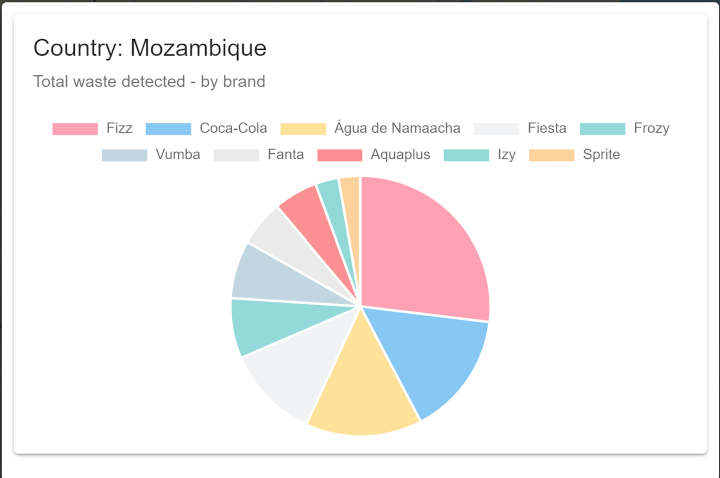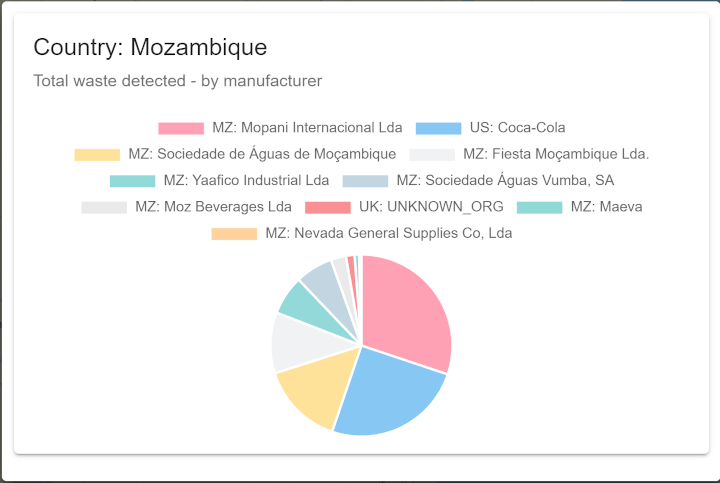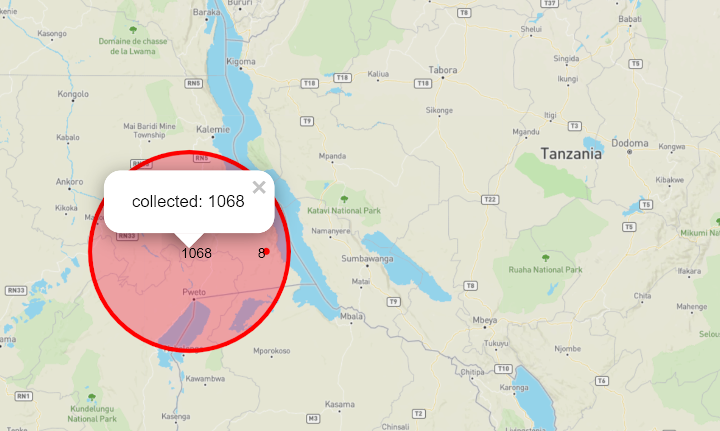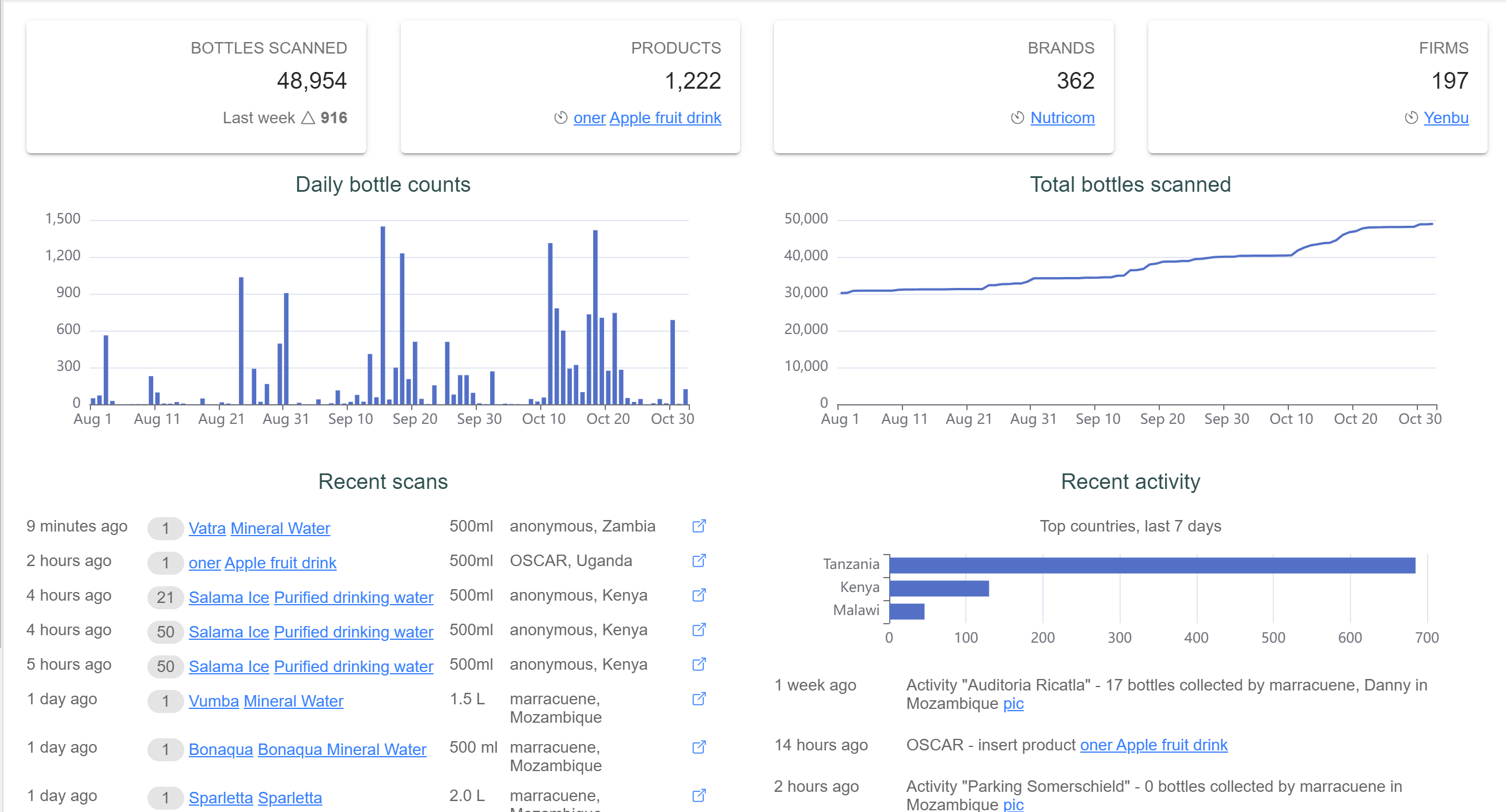Welcome to our crowdfunding site. You'll find out about the problem we're trying to solve, and how you can help. If you'd like to support us, click 'Support this project' at the top of the page.
The plastic problem
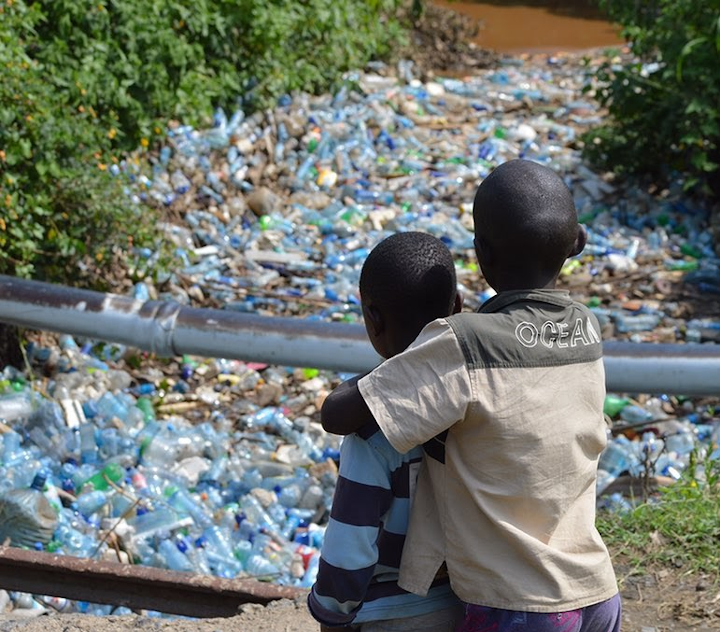 Credit: @JamesWakibia
Credit: @JamesWakibia
Africa’s waterways are clogged with plastic waste. This photo was taken by Kenyan activist and photojournalist, James Wakibia. It shows the Njoro River, which flows from the Mau Forest, through residential areas and into Lake Nakuru, a UNESCO World Heritage Site. Except you can barely see the river.
Sadly, this is a common sight in many countries in Africa.
80% of ocean plastic comes from land based sources.
It’s very easy for discarded, single use bottles to end up in a waterway, such as the mangroves or rivers that support many coastal towns and cities. Once plastic enters the ocean, it’s incredibly costly and difficult to clean up.
"In 2016, the world generated 242 million tonnes of plastic waste...[Plastic waste makes up] 12% of all municipal waste. Plastic waste is choking our oceans, yet our consumption of plastics is only increasing." World Bank*
1 person died every 30 seconds in developing countries because of diseases related to plastic and other poorly managed waste.
That’s up to 1 million deaths per year.**
Our solution
We use modern smartphone and cloud technology to make it easy to track, reuse and recycle plastic waste.
Our crowdsourced data platform, Wastebase, collects information from local clean ups and makes it easy to see where single use plastic ends up. This means that the companies that produce this plastic can be held to account. We believe that everyone, from producers to retailers to consumers, is responsible for what happens to the plastic they make, sell or consume.
We've collected data from over 40,000 discarded bottles since we launched.
How data can change the world
Here’s the simple version.
You might be someone who wants to do something about plastic waste in your community. You might join a clean up day, and spend a few hours picking up the many plastic bottles that people throw away every day. You might even recycle those bottles, or record what you’ve collected with photos or written records. You’ll have made a big difference to your local environment.
Now, imagine you could multiply that impact/difference. Imagine you could tell the world about which type of bottles you found and where. Imagine you could show the companies that made those bottles exactly where they ended up - under a bush, on a beach, in a river on their way to the sea.
That’s what we do.
We collect thousands of data points from clean ups across sub-Saharan Africa. Using our app, our local partners scan the barcodes of the bottles they collect. Information about that bottle is instantly uploaded to Wastebase.
Our data specialists then link each barcode to extra information about the bottle, such as brand, owner, plastic type, volume and weight. If anyone else scans the same product, they’ll be able to see who made that bottle, who sold it and information about how the bottle is made.
This means we can see ALL the products discarded by one company, even if they have different brands. For example, Coca Cola owns lots of brands, such as Fanta, Sprite and Schweppes. Wastebase adds all of these together to show Coca Cola how much their products are contributing to overall plastic pollution.
Shareable data about plastic waste
Anyone can use Wastebase to filter, visualise and extract information about where plastic ends up, and who needs to take responsibility. These charts show the proportion of plastic bottle waste found in Mozambique, by brand and by manufacturer.
And this map shows you how many bottles we collected in one area in Tanzania. Using the map, you can zoom in to see which types and brands were found where.
This graphic shows the country of manufacturer for bottles found near Lake Nakuru, a UNESCO World Heritage Site in Kenya. 38% of these bottles came from companies based in the United States.
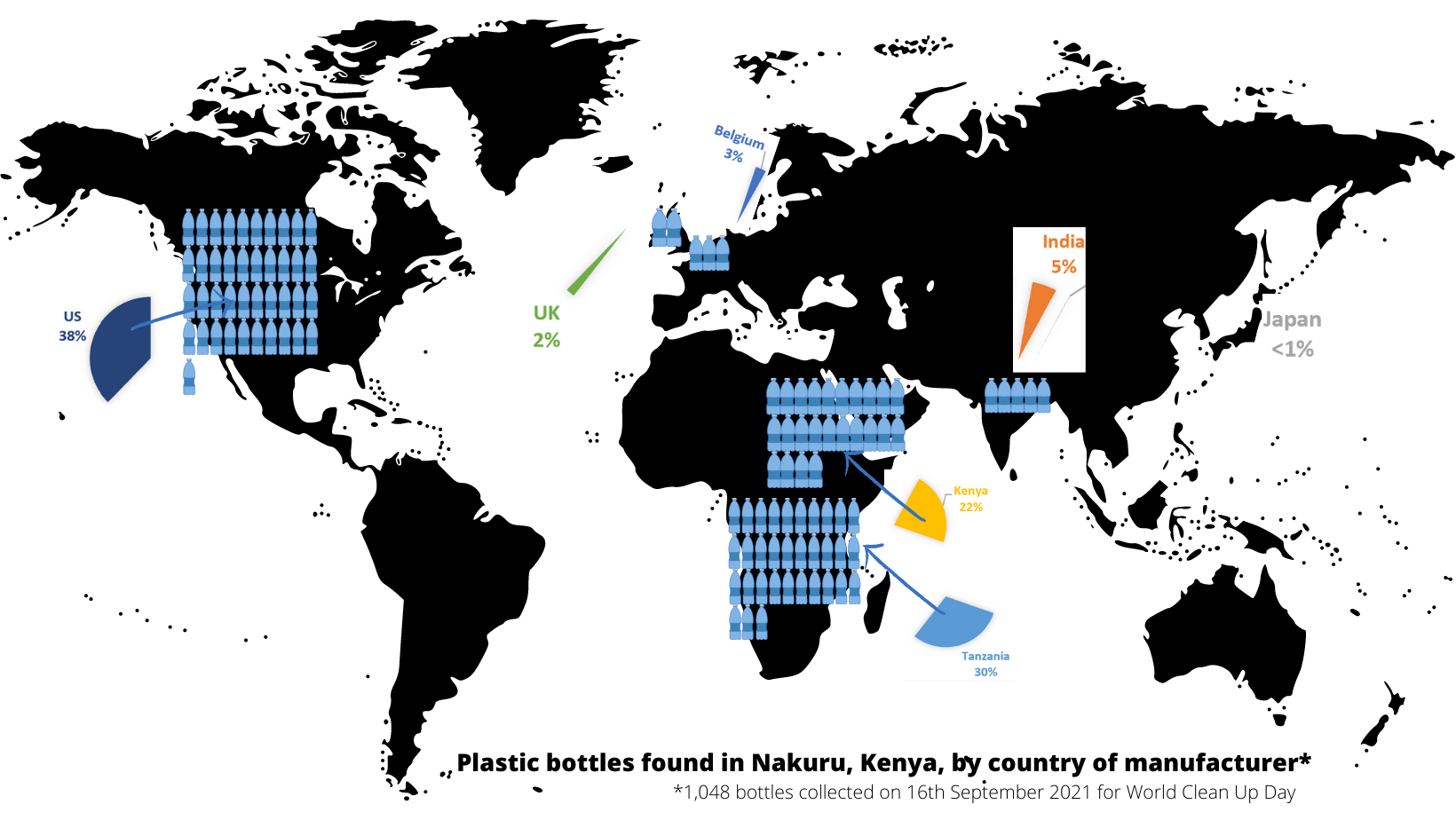
How all this makes a change
By supporting Wastebase, you can help us use this data to make big differences. Here are some examples:
At a local level (for example, in a city):
One of our partners, Repensar Environmental Cooperative, carries out regular clean ups in Maputo, Mozambique, a city famed for its sandy beaches. They collected data about the waste they picked up, then took it to the city’s municipal waste authority. By showing them where most of the waste collected (around local beauty spots), they convinced the waste authority to change the routes for their waste collection trucks, to prevent this waste from ending up in the city’s waterways.
At a national level:
Many countries in Africa face huge, systemic challenges with managing waste. These are often driven by rapid growth in consumerism alongside economic growth. Municipal authorities struggle to find effective ways to manage the sheer volume of waste produced. Working with partners at a country level, we can help municipal authorities to make more informed and sustainable decisions about how to collect and process waste.
At a global level:
Data is more powerful when there is lots of it. Wastebase connects data about plastic waste to make it more credible. People and organisations who want to reduce plastic waste can use our data to demonstrate the problem to industry and government decision-makers, and make a stronger case for change.
We won’t let plastic producers hide behind a lack of data. We’ll show them exactly where their products end up.
We believe in a circular economy for plastic.
Cleaning up the world’s plastic waste is an enormous challenge. But we can make it easier for the people who make, use and process plastic to adopt better practices so that waste can be collected and managed in a way that reduces harm to the environment. One day, all plastic could be continuously recycled and reused in an endless circle, rather than having a linear journey from factory to ocean waste.
What you can do
Sponsor a data package
By sponsoring a number of scans each month, you’ll help us clean up waste while collecting more data. For just $10, you can amplify data from a local clean up and help us change the way the world manages plastic waste.
Install our data tracking app on Google Play Store
Contact us for a log in, then you can scan single use plastic bottles wherever you are in the world. You could even organise your own clean up. You'll be able to see everything you've scanned on the Wastebase map.
Tell others about what we do
Read more about our approach. Keep up to date with our activity on Twitter and share our monthly reports about the biggest plastic polluters in each area.
We need your support. Our teams are ready to scan. Sponsor us today.
We're a social enterprise
That means that we put our profits into creating positive impact for people, places and the environment. We want to support the global movement to end plastic waste and reduce the harm that plastic waste does to our planet.
We are based in the UK, but our focus is on developing countries in sub-Saharan Africa. We work with environmental NGOs in countries where waste collects in coastal areas and waterways to the sea. Our Data Partners help us collect data about plastic waste through local collections and 'brand audits'.
Find out more about our partners here.
Currently, we have Data Partners in:
- Malawi
- Mozambique
- Tanzania
- Zambia
*What a waste: a global snapshot of solid waste to 2050 World Bank 2020
**No time to waste: the burning issue of the plastic crisis
Tearfund Consortium 2019

